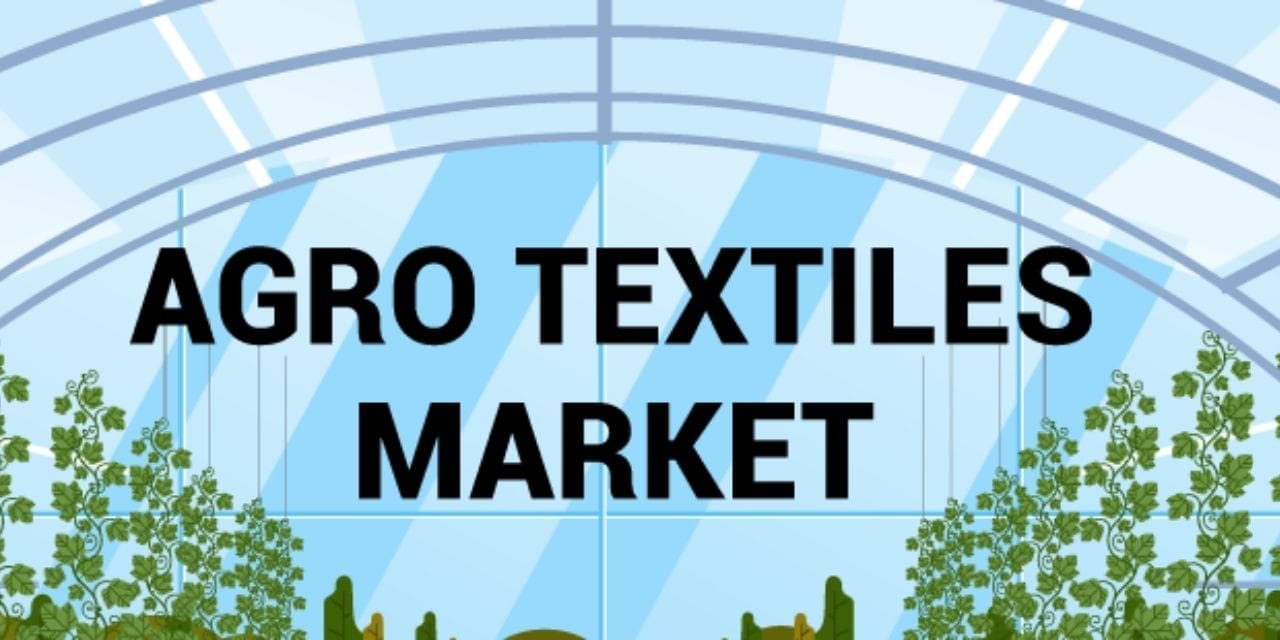According to Prophecy Market Insights, Agro Textile Market Size, By Product, By Product Type, By Fibers, By Materials, By Application and By Region– Trends, Analysis, and Forecast till 2032 Agro Textile market is poised for substantial growth in the coming years, driven by increased demand for innovative agricultural solutions. Agro textiles, which include products such as shading nets, mulch mats, and crop covers, are gaining popularity due to their ability to improve crop yield, protect against adverse weather conditions, and enhance overall agricultural productivity.
Get a Free Sample of the report

Key Factors Driving Growth:
1. Rising Global Food Demand: With the global population projected to reach 18.9 billion by 2032, there is an increasing need for efficient agricultural practices. Agro textiles offer a sustainable solution by helping farmers optimize resources and improve crop quality.
2. Technological Advancements: Innovations in textile manufacturing, such as the development of biodegradable and eco–friendly materials, are making agro textiles more appealing to environmentally conscious consumers and industries.
3. Government Initiatives: Several governments are promoting the use of agro textiles as part of their agricultural policies, providing subsidies and support to farmers adopting these technologies. This is expected to further boost market growth.
4. Climate Change Mitigation: As climate change continues to impact agriculture, farmers are increasingly turning to agro textiles to protect their crops from extreme weather conditions, such as excessive heat, frost, and heavy rains.
2. Technological Advancements: Innovations in textile manufacturing, such as the development of biodegradable and eco–friendly materials, are making agro textiles more appealing to environmentally conscious consumers and industries.
3. Government Initiatives: Several governments are promoting the use of agro textiles as part of their agricultural policies, providing subsidies and support to farmers adopting these technologies. This is expected to further boost market growth.
4. Climate Change Mitigation: As climate change continues to impact agriculture, farmers are increasingly turning to agro textiles to protect their crops from extreme weather conditions, such as excessive heat, frost, and heavy rains.
Market Segmentation
• By Type – Weaving and Woven, Nonwoven, Knitting
• By Product Type – Shade Nets, Mulch mats, Fishing nets, Anti–hail nets, bird protection nets, and others (Harvesting Nets, Crop Covers, Plant Nets, Root Ball Nets, Pallet Net Covers, Leno Bags, and Windshield Nets)
• By Fibers – Polyester, Nylon, Polyethylene, Jute, Polypropylene, Wool, Polyolefin
• By Material – Synthetic, Natural
• By Application – Agriculture, Aquaculture, Floriculture & Horticulture, and Others (Animal Husbandry and Agro Engineering Related Application
• By Product Type – Shade Nets, Mulch mats, Fishing nets, Anti–hail nets, bird protection nets, and others (Harvesting Nets, Crop Covers, Plant Nets, Root Ball Nets, Pallet Net Covers, Leno Bags, and Windshield Nets)
• By Fibers – Polyester, Nylon, Polyethylene, Jute, Polypropylene, Wool, Polyolefin
• By Material – Synthetic, Natural
• By Application – Agriculture, Aquaculture, Floriculture & Horticulture, and Others (Animal Husbandry and Agro Engineering Related Application
Market Outlook:
According to industry analysts, the Agro Textile market is expected to grow at a compound annual growth rate (CAGR) of over 6% during the next decade. This growth will be fueled by expanding agricultural activities in emerging economies, particularly in Asia–Pacific and Latin America, where agrotextiles are becoming integral to modern farming techniques.
In summary, the future of the Agro Textile market looks bright, with significant opportunities for growth and innovation. As the agricultural sector continues to evolve, agro textiles will play a crucial role in ensuring food security and sustainable farming practices worldwide.

